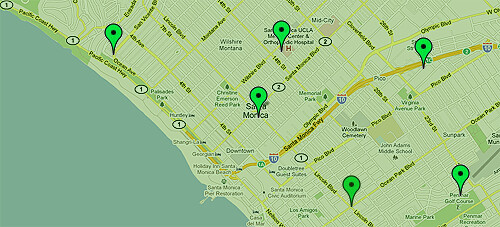This post was written by Rob Reed. He is the founder of MomentFeed, a location-based marketing, strategy, and technology firm.
Location technologies are transforming how we experience, navigate, and ultimately better our world. From the global to the local, here are #10Ways geolocation is a positive force for good.

Social media has changed the world. It has revolutionized communications on a global scale, and the transformation continues with every status update, blog post, and video stream. The global citizenry has become a global network.
Since becoming widely adopted just a couple years ago, social media has supercharged social action, cause marketing, and social entrepreneurship. Indeed, the true value hasn’t been the technology itself but how we’ve used it. Today, a second wave of innovation is defining a new era and setting the stage for change over the coming decade.
Mobile technologies will extend the global online network to anyone with a mobile device while enabling countless local networks to form in the real world. We’ve decentralized media production and distribution. We’re doing the same for energy. And we’ll continue this trend for social networking, social action, and commerce.
The combined forces of smartphones, mobile broadband, and location-aware applications will connect us in more meaningful ways to the people, organizations, events, information, and companies that matter most to us—namely, those within a physical proximity of where we live and where we are. Can location-based services (LBS) change the world? Here are #10Ways:
 1. Checking in for Good: If Gowalla and Foursquare have taught us anything, it’s that people respond to simple incentives. By offering badges, mayorships, and other intangible rewards, millions of people are checking in to the places they go. Apps like Whrrl take this a step further and enable like-minded “societies” to form on a local basis. The next step is for these apps to add greater purpose by encouraging more meaningful checkins and offering corresponding badges and stamps, thus mapping the cause universe. Or for a dedicated app to be developed that rewards conscious consumption, social responsibility, and civic engagement. Yes, the CauseWorld app features a cause element, but it’s not about cause-worthy places.
1. Checking in for Good: If Gowalla and Foursquare have taught us anything, it’s that people respond to simple incentives. By offering badges, mayorships, and other intangible rewards, millions of people are checking in to the places they go. Apps like Whrrl take this a step further and enable like-minded “societies” to form on a local basis. The next step is for these apps to add greater purpose by encouraging more meaningful checkins and offering corresponding badges and stamps, thus mapping the cause universe. Or for a dedicated app to be developed that rewards conscious consumption, social responsibility, and civic engagement. Yes, the CauseWorld app features a cause element, but it’s not about cause-worthy places.
Continue reading “10 Ways Geolocation is Changing the World”



 1. Checking in for Good: If
1. Checking in for Good: If